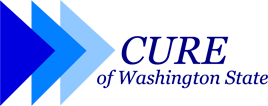Here’s another good example of an expression that means different things to different people: School Choice.
Of course people want choices. Who wouldn’t? However, often various education choices are either deliberately or unintentionally mixed together. Private school, homeschooling, online schools, vouchers, and charter schools are often mixed together as “choices,” but there are big differences.
Private school, homeschooling, online schools, vouchers, and charter schools are often mixed together as “choices,” but there are big differences. Within these choices, private schools, homeschools, and non-government online schools are independent of government money. In homeschooling and independent online schooling the parents are free to choose a curriculum that fits the child and the parents’ goals for that child. In private schools, the directors of the school choose the curriculum, but must be responsive to the parents’ wishes. However with government online schools, vouchers, and charter schools, all funded by government money, there are strings attached. Various aspects of the education the child receives will be dictated by the state. For example, currently in Washington State, all charter schools must follow the Common Core Standards.
There is a more insidious difference with government-funded education options. They work to destroy representative government. With charter schools, the school board members may be chosen by the charter corporation, not elected by the parents or taxpaying citizens, and thus they are really not accountable to the parents or taxpayers. Some say parents can “vote with their feet” and withdraw their children, but what about taxpayers who don’t have children in that school? They still have to pay taxes for that school. In New Orleans, all the schools are charter schools, so the people there are disenfranchised with respect to the schools.
I rarely defend the current public school system, but at least the structure is compatible with representative government. The people elect the school board, and the school board makes education decisions for the district. If the people are dissatisfied, they can elect different school board members. I admit, in reality different political interests tug in multiple directions and a sort of stalemate often occurs, but the structure still honors representative government. In the Charter school system the parents’ voting input is so indirect that they are effectively out of the governance structure.
Many people think charter schools are akin to a free-market option. If the government is funding the school and controlling the curriculum, how can it be a free market option?
Please read Anita Hoge’s commentary, “Common Core, Choice, and Charter Schools.” Please be aware that even though the Obama administration is directing the development of Charter Schools, as well as promoting the Common Core and data collection, these concepts have been promoted by people from both parties for decades.
